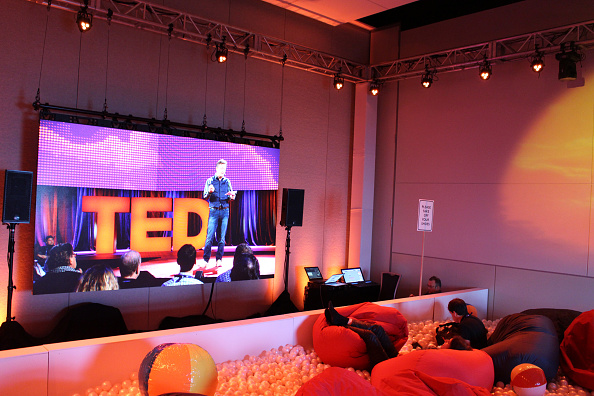
For several years I have been attending the TED conference, first in Long Beach, Calif., and most recently in Vancouver. Each year I can count on being approached by other attendees and asked the same question: “What are you doing here?”
Because I wear a kippah and my badge identifies me as a rabbi, I often strike the creators, technologists, designers, software moguls and investors as an anomaly. Why would a religious person choose to attend TED? Indeed in the years I have been there, I have met only one other clergy member. Yet I think it would be to the benefit of both religious people and techies if they saw each other a little differently.
Judging from years of conversations on the matter, many of those who attend TED seem to be either indifferent or unsympathetic to traditional religion. They believe it is an obstacle to progress and unscientific in its orientation. Although this year there was a presentation by a Muslim woman opposing anti-Muslim discrimination, the presentations that have a religious cast tend to more spiritual, new-age connectedness than ritual practice or encouraging membership in traditional institutions.
Here is the problem with this split: TED is an extraordinarily creative and effective organization that is really trying to help people change the world. The religious community, meanwhile, is still the greatest single mobilizable army to do good in this world. The convergence of the two would be a force of tremendous power.
When I have traveled to developing countries, the aid workers are often largely religious. I remember meeting devout Christians in Haiti who had spent decades building housing for the poor. Some of them have an agenda of conversion. But many are there because they believe it is a divine mandate to help the needy. Religious charities are wide-ranging and global in their reach.
Even individual congregations can spark a change: After I heard Nicolas Negroponte talk about his one-laptop-per-child program, my synagogue raised money to buy scores of computers for children in Rwanda. That’s just a drop in the bucket to be sure, but there are oceans of drops out there waiting for the right synergy. For worldwide problems, like human trafficking or literacy, the combination of the two communities could be transformative.
People at TED are bursting with ideas and technology. We need not discuss theology or lament the baleful effects that violent religious ideologies cause or the dehumanizing effects of some scientific practices. The point is to make alliances that work to alleviate suffering. Religion should be more open to the power of modern imagery and techniques, and the creative and technological community should be more respectful of the religious drive to philanthropy. More than at any time in history, we can change the world together.
More Must-Reads from TIME
- Cybersecurity Experts Are Sounding the Alarm on DOGE
- Meet the 2025 Women of the Year
- The Harsh Truth About Disability Inclusion
- Why Do More Young Adults Have Cancer?
- Colman Domingo Leads With Radical Love
- How to Get Better at Doing Things Alone
- Michelle Zauner Stares Down the Darkness
Contact us at letters@time.com